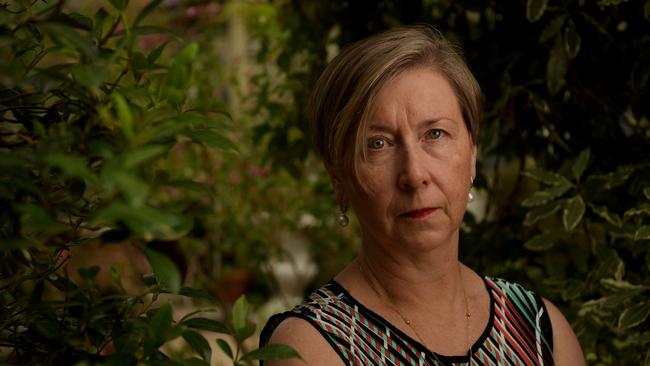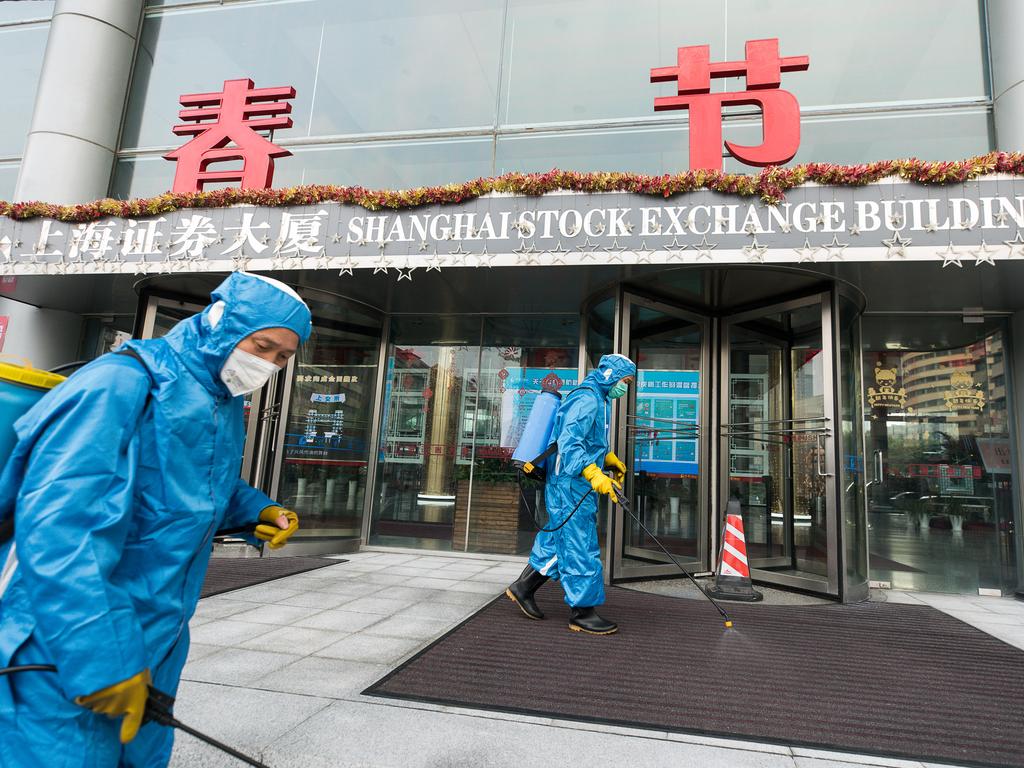Australian scientists in race to find coronavirus vaccine
Australia will be asked to pay into a $2bn global fund to find a vaccine for the deadly Wuhan virus.

Australia will be asked to pay into a $2bn global fund to find a vaccine for the deadly Wuhan virus, as the woman heading the initiative warned the pandemic could not be contained without it.
The chairwoman of the Coalition for Epidemic Preparedness Innovations, Jane Halton, a former federal Health Department secretary, said drug regulators here and internationally would also be approached to shortcut approval protocols, so serious was the threat.
The known cases in Australia stand at 15 after a 37-year-old Chinese man from Wuhan tested positive to the new coronavirus on the Gold Coast, the fifth member of a tour party of nine to succumb.
The virulence of the strain was dramatically underlined when the number of ill passengers on a quarantined cruise ship off Japan tripled in a single day, from 20 to 61 on Friday. Of the 3711 people on board the Diamond Princess, 223 are Australians confined to their cabins.
Australian scientists are at the forefront of the race to develop a vaccine and the CSIRO says a prototype could be ready for preclinical trials by early next month.
Ms Halton said this had to be a priority because lockdowns, travel restrictions and other public health measures to isolate infected people would not stop the disease from spreading. It has emerged in 26 countries, though 90 per cent of the reported cases are in China, concentrated in the industrial city of Wuhan and surrounding areas of Hubei province.
“I wholeheartedly support the non-pharmaceutical interventions being used around the world, but I don’t think we should kid ourselves that will itself eliminate the virus,” she told The Weekend Australian. “It may burn itself out. For example, we don’t know how the weather in China will have an effect when it warms in the next month or so … but by definition it is not contained now.”
The board of her coalition, a partnership between countries and research groups backed by the financial grunt of the Bill and Melinda Gates Foundation and Britain’s Wellcome Trust, voted this week to set up the special-purpose fund to fast-track a vaccine for the virus, 2019-nCoV.
In addition to the promising Australian studies, US company Moderna Therapeutics is zeroing in on a treatment at its Boston labs.
But Ms Halton said it was too risky to bank on one of these projects coming through, and further research had to be funded. “The CEPI board agreed that we need to increase the number of vaccine candidates,” she said.
“We are concerned, rightly in my view, that in any work we do on vaccine development you need a number of candidates in order to get it to a successful vaccine, and we agree we will probably need to mobilise resources in the order of $2bn. We will be looking to sovereign governments and the private sector to provide some supplementation of our funding to enable us to do that.
“It will be our expectation that we will be talking to governments who are currently among our funders, and that includes the Australian government.”
As departmental head in 2003, Ms Halton implemented Australia’s response to the SARS outbreak, another coronavirus that caused 8098 reported infections worldwide, killing 774 people. She established the national stockpile of antiviral drugs and the Office of Health Protection that has swung into action to combat the Wuhan strain.
Ms Halton said the outbreak was already more severe than SARS — with 31,161 cases and 634 deaths reported in mainland China alone — and had probably not peaked. “This one is not contained and that is not a criticism of anybody, that is just the reality,” she said.
“So you would say that even if the curve of the epidemic hits its peak in the next couple of weeks in Wuhan, we know that a significant proportion of the cases in China are not in Hubei province, so the peak has got a way to go even if it is under control in several other places. Certainly, we would continue to see increases in numbers of cases, but we hope that would be managed in Australia courtesy of what’s happened with both quarantine and border restrictions. I would fully expect there would be more deaths from this than SARS.”
One consolation was that the death rate from 2019-nCoV has generally been reported to be less than 2 per cent, compared with 6-7 per cent for SARS and up to 30 per cent for MERS, another coronavirus that jumped from its hot zone on the Arabian peninsula to South Korea in 2015.







To join the conversation, please log in. Don't have an account? Register
Join the conversation, you are commenting as Logout